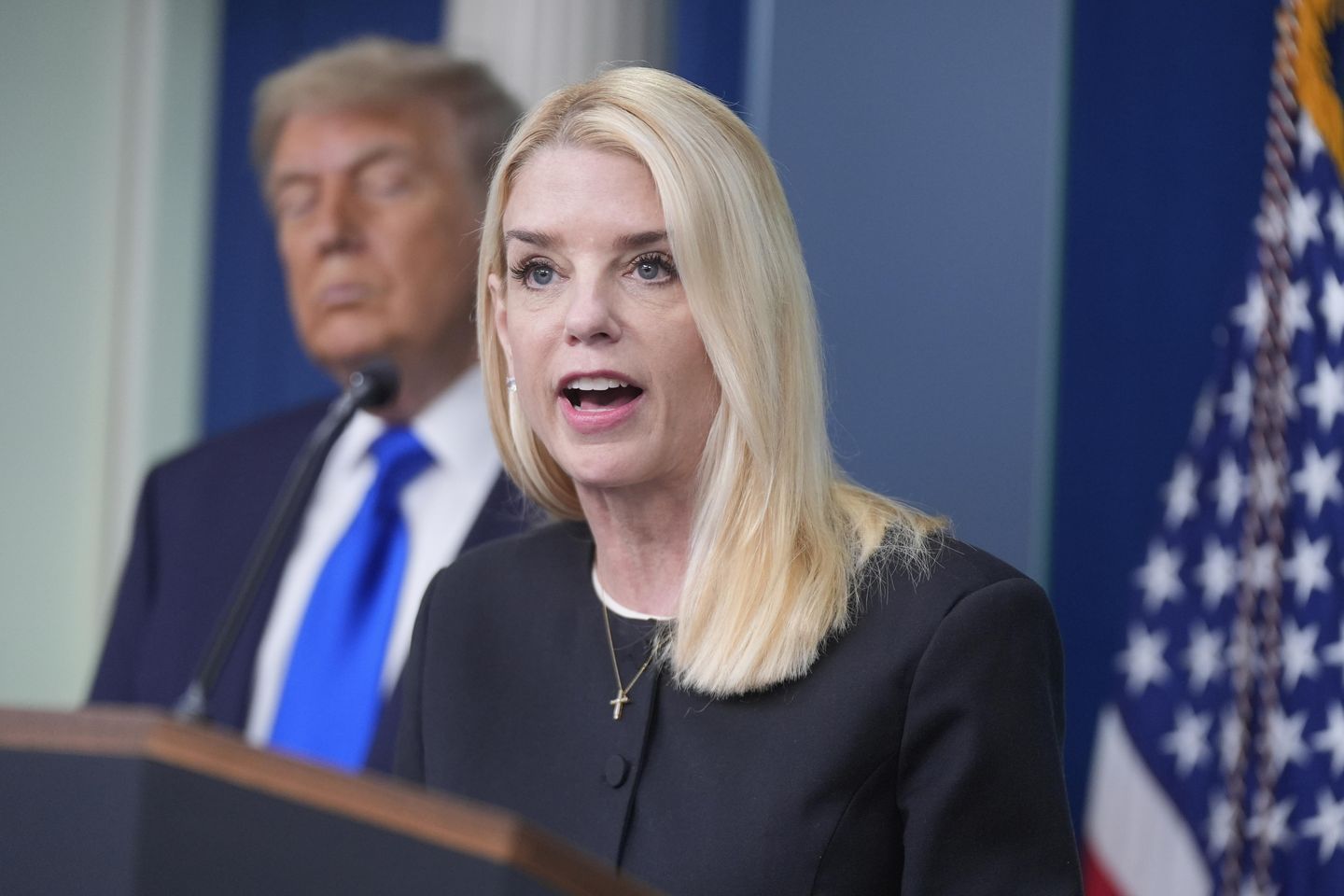
Attorney General Pam Bondi on Monday ordered the federal bureaucracy to start eliminating websites, notices and forms offered in languages other than English, saying it’s time to carry out President Trump’s executive order declaring English the government’s official language.
She said agencies should assess their multilingual offerings and determine which ones aren’t required by law or aren’t absolutely essential to operations. They should then eliminate them and use any savings to promote English instead, she said.
She rescinded a Clinton-era policy that made it easier to bring civil rights violations against those deemed to have discriminated against someone based on their lack of English proficiency, and she suspended the department’s web page that offered guidance to other agencies urging them to provide access to government services in different languages.
Ms. Bondi told agencies to consider artificial intelligence as a way to help those who struggle with English access government services.
“English proficiency empowers individuals with a vital pathway to civic engagement, equipping them with the tools to contribute to public discourse, volunteer in civic initiatives, and meaningfully monitor current events — key pillars of informed citizenship and participation in our democracy,” Ms. Bondi said.
Assistant Attorney General Harmeet K. Dhillon said the government respects “linguistic diversity” but taxpayers’ money should not be used to promote alternatives to English to the extent allowed by law.
“President Trump’s executive order marks a pivotal step toward unifying our nation through a common language and enhancing efficiency in federal operations,” she said.
The new guidance’s most important provision is an admonition to agencies to “determine which of their programs, grants and policies might serve the public at large better if operated exclusively in English.”
Ms. Bondi and Ms. Dhillon also suggested that agencies use any savings from reduced translation costs to fund research on improving English proficiency and assimilation.
Agencies that still deem multilingual services critical were told to include a disclaimer noting that English is the official language of the federal government.
In his March order, Mr. Trump said English was a unifying force in the U.S. and should be celebrated.
“Establishing English as the official language will not only streamline communication but also reinforce shared national values, and create a more cohesive and efficient society,” he said.
He revoked President Clinton’s 2000 executive order urging expanded access for “persons with limited English proficiency” but left it up to agencies to decide what that meant for their operations.
Ms. Bondi’s guidance suggests potential changes.
The Pew Research Center said 9% of U.S. residents are not proficient in English. Another 14% report speaking a language other than English at home but indicated they can speak English “very well.”
Although Pew found Americans to be generous about making personal accommodations when dealing with immigrants who struggle with the language, pushing for English as an official language for the government remains popular.
Roughly three-quarters of respondents supported the idea in a Rasmussen Reports poll earlier this year.
The Senate in 2006 voted in favor of making English the “national language” as part of a broader debate over legalizing illegal immigrants. That bill did not become law.
Opponents of an official language argue that immigrants generally want to learn English independently, but prodding them with government action will not help.
“Mandating English as an official language is a solution to a problem that does not exist: there is no evidence suggesting that English is under threat,” the Linguistic Society of America said after Mr. Trump issued his executive order in March.



![Steak ’n Shake Mocks Cracker Barrel Over Identity-Erasing Rebrand [WATCH]](https://www.right2024.com/wp-content/uploads/2025/08/Steak-n-Shake-Mocks-Cracker-Barrel-Over-Identity-Erasing-Rebrand-WATCH-350x250.jpg)



![Soros Network, Others Behind LA Riots [WATCH]](https://www.right2024.com/wp-content/uploads/2025/06/Soros-Network-Others-Behind-LA-Riots-WATCH-350x250.jpg)
![Human Trafficking Expert Details Horrific Biden Admin Endangerment of Migrant Kids [WATCH]](https://www.right2024.com/wp-content/uploads/2025/07/Human-Trafficking-Expert-Details-Horrific-Biden-Admin-Endangerment-of-Migrant-350x250.jpg)

![Mount Rushmore Could Get Trump Upgrade Under GOP Push [WATCH]](https://www.right2024.com/wp-content/uploads/2025/07/Mount-Rushmore-Could-Get-Trump-Upgrade-Under-GOP-Push-WATCH-350x250.jpg)





